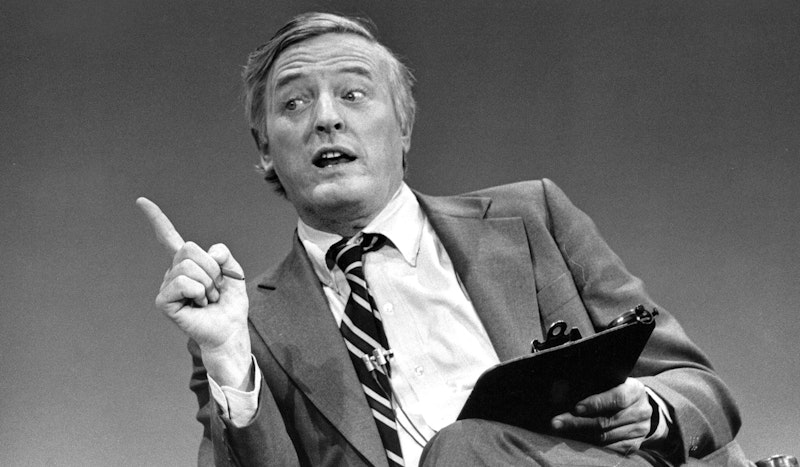I don’t like to write. It doesn’t give me much pleasure. My attention span tends to be short. If I’m writing in a room that’s filled with books, I’ll quickly become distracted. I suppose they call this ADHD but let’s not distract ourselves with labels. Despite this lack of pleasure, I’m committed to creating new articles. I take it seriously and accept responsibility in producing something that’ll inform and I hope elevate the reader. Because of my level of self-inflicted distraction, I try to write as quickly as possible. There’s always something to say and comment upon but how long should this commentary be?
William F. Buckley, Jr. was famous for his weekly columns, which averaged somewhere between 700 and 800 words. The columns usually dealt with the political and social events of Buckley’s time, and in them, Buckley contributed his thoughts on how culture was changing and what needed to be done to preserve the order of things. He wrote his columns quickly. Reportedly, it took him around 20 minutes to write it. Is this really that inconceivable? Buckley didn’t think so.
People of Buckley’s time noticed his gift and had plenty to say about it. One critic, Morton Kondracke, wrote in 1986: “He [WFB] reportedly knocks out his column in twenty minutes flat—three times a week for 260 newspapers. That is too little time for serious contemplation of difficult subjects.”
Buckley considered this “a declaration of war,” and explored the subject in his essay, “On Writing Speedily” in 2004’s Miles Gone By: a literary autobiography. Naturally, he vehemently disagreed with Kondracke, and although he wasn’t against contemplation or deliberation, he was “against the preposterous suggestion that to think longer (endlessly?) about a subject is necessarily to probe it more fruitfully.”
It’s not easy to achieve brevity in writing. Humans have a tendency to go on tangents, which can provide interesting entrances into a variety of subjects. But are we only speaking mere words or are we trying to say something more meaningful? This isn’t an argument against long articles, but we should be observant of this problem.
Buckley was unique. Part philosopher, part cultural critic, and part journalist, he was a singular combination of all these aspects. His idea of “conservatism as a disposition” (which was inspired by the work of British philosopher, Michael Oakeshott) is true in every sense of the word. It’s most prominently connected to his political world view, and one of the reasons why he was so successful is because he didn’t view conservatism as an ideology but as a way of being. Ideology annihilates metaphysics, or worse, masquerades as a metaphysical form, and Buckley rejected this notion. Without order and the internal compass that doesn’t present man as the measure of all things, any thoughts we may produce will be devoid of careful deliberation, contemplation, and most of all, reality.
This Oakeshottian idea of conservatism as a disposition wasn’t only present in Buckley’s intellectual and political outlook but also in his writing. Unlike most writers today, who wax eloquent, or not, about conservatism, Buckley had substance. He didn’t base his existence on pure branding, something that dominates the media today. It shouldn’t be surprising why so many fast rising stars in the media fall: they use conservative gimmicks to hearken back to a time long gone, yet they have no substantive thoughts. They lack open-mindedness and a freedom to possibly be persuaded by the other side.
When Buckley sat down to write a column or a book, there was no metaphysical confusion in his mind. He understood the path he was on, and he didn’t stray from it. The arrival was less important. As he writes, “I acknowledge that when I begin to write I do not know what exactly I am going to say, or how exactly I’m going to say it…” There are many aspects to human thought that contribute to the way a writer writes, and he or she is “drawing on huge reserves… And these reserves you enhance during practically an entire course of the day…”
What’s required from a good writer is depth, a way to see and comprehend the world, and recognize the intricacies and nuances of life, while knowing the difference between good and evil. Buckley had these in abundance, and this is what continues to make him important and inspiring.

